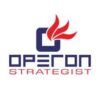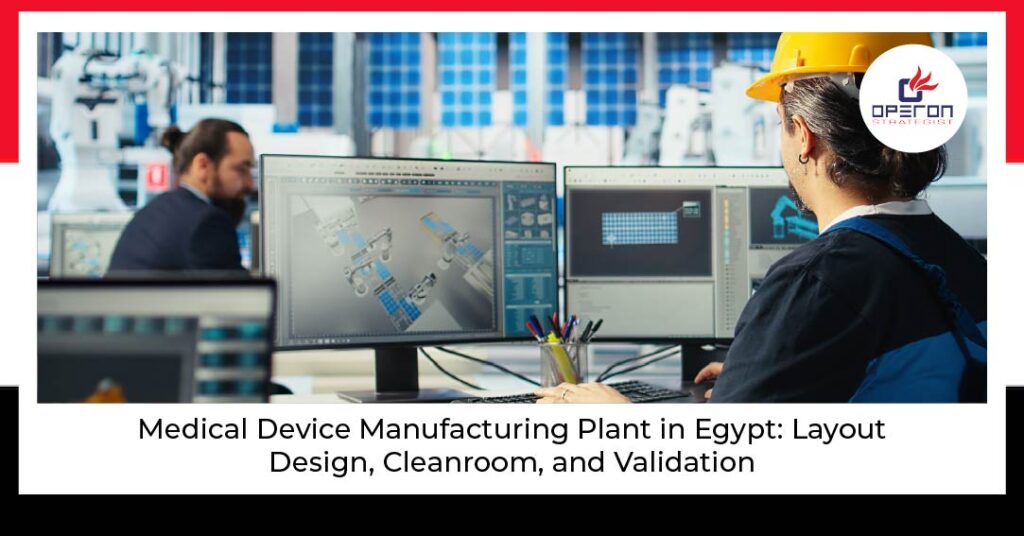The Growing Opportunity for Medical Device Manufacturing in Egypt
The medical device manufacturing industry in Egypt is expanding rapidly, fueled by rising healthcare needs, supportive government policies, and increasing foreign investment. For companies planning to establish a compliant facility, focusing on plant layout design, cleanroom construction, and process validation is essential. These elements not only ensure product quality and patient safety but also guarantee compliance with the Egyptian Drug Authority (EDA) and international standards such as ISO 13485.
This guide provides a step-by-step roadmap for establishing a medical device manufacturing plant in Egypt, covering facility design, cleanroom requirements, and validation processes to help manufacturers achieve regulatory success and operational efficiency.
Add Your Heading Text Here
Why Egypt is a Strategic Location for Medical Device Manufacturing?
Egypt is emerging as a key hub for medical device manufacturing, offering multiple advantages for local and international companies:
- Strategic geographic location: Connects the Middle East, Africa, and Europe for efficient export and supply chain opportunities.
- Supportive regulatory environment: Reforms by the EDA facilitate facility registration, approvals, and compliance.
- Cost-effective infrastructure and skilled workforce: Reduces operational costs while maintaining high-quality production.
- Growing demand for locally manufactured devices: Strengthens domestic supply and export potential.
Establishing a facility in Egypt enables manufacturers to tap into regional and global markets while ensuring compliance with regulatory requirements.
Facility Layout Design for Medical Device Manufacturing
A carefully planned facility layout is the foundation of a successful medical device manufacturing plant. It improves workflow, reduces contamination risks, and supports regulatory compliance.
Key considerations include:
- Unidirectional workflow: Proper movement of personnel and materials to minimize contamination.
- Zoning of functional areas: Separate zones for raw materials, production, packaging, quality control, and storage.
- High-risk and low-risk segregation: Prevents cross-contamination and ensures product integrity.
- Scalability: Allows future expansion without disrupting operations.
An optimized layout design aligns with ISO 13485 requirements, boosts operational efficiency, and reduces long-term costs.
Cleanroom Requirements for Medical Device Manufacturing
Cleanrooms are critical for maintaining sterility and product quality in medical device manufacturing.
Essential requirements include:
- Cleanroom classification: ISO 7 or ISO 8 depending on the device type.
- HVAC system design: Maintains controlled temperature, humidity, and air pressure.
- Continuous monitoring: Particle counts and microbiological testing to ensure contamination control.
- Validation: Design Qualification (DQ), Installation Qualification (IQ), Operational Qualification (OQ), and Performance Qualification (PQ).
Complying with cleanroom standards is mandatory for EDA inspections and international regulatory requirements such as FDA and EU MDR.
Process and Equipment Validation
Validation ensures that medical devices are manufactured consistently under controlled conditions.
- Process Validation: Confirms critical processes like sterilization, assembly, and molding are reliable and repeatable.
- Equipment Validation: Ensures machinery operates according to defined specifications.
- Software Validation: Required for automated systems in compliance with ISO 13485 software validation requirements.
- Packaging Validation: Guarantees product integrity and sterility during storage and transport.
Proper validation documentation supports smooth regulatory submissions and audits for both EDA and international approvals.
Regulatory Considerations in Egypt
Compliance with EDA regulations is mandatory before commercializing medical devices. Key steps include:
- EDA registration: Submission of facility and device documentation for approval.
- ISO 13485 certification: Implementation of a robust quality management system.
- Global compliance alignment: Ensuring the facility meets FDA, CE marking, and MDSAP standards for international markets.
Early engagement with the EDA and professional consultation can prevent delays and improve approval efficiency.
Common Challenges and Practical Solutions
Challenge: High costs of cleanroom construction.
Solution: Use modular cleanroom systems for flexibility and cost-effectiveness.
Challenge: Complex validation and documentation processes.
Solution: Partner with regulatory experts to create EDA-ready technical files.
Challenge: Regulatory submission delays.
Solution: Begin early consultation with EDA and ensure documentation accuracy.
Addressing these challenges proactively ensures faster approvals and smoother plant operations.
Why Partner with Operon Strategist for Medical Device Manufacturing in Egypt?
At Operon Strategist, we provide end-to-end consulting support for medical device manufacturing in Egypt, covering every stage of the journey—from plant layout design, cleanroom setup, and validation documentation to achieving EDA approval and international certifications. With over a decade of regulatory expertise, our team helps manufacturers design compliant facilities, implement robust quality systems, and streamline regulatory submissions. Partnering with us ensures your facility setup is efficient, compliant, and positioned for long-term success in both local and global markets.
Setting up a Plant in Egypt?
FAQ'S
The main steps include planning the plant layout, designing cleanrooms, implementing process validation, complying with EDA regulations, and achieving international certifications such as ISO 13485.
Cleanrooms control contamination, maintain sterile conditions, and meet global regulatory requirements, ensuring product quality and patient safety.
he EDA regulates medical device manufacturing in Egypt by setting standards for facility design, validation, and product approval before devices can enter the market.
Process validation ensures consistent quality, verifies equipment performance, and aligns manufacturing practices with ISO 13485 and FDA guidelines.
Operon Strategist provides end-to-end consulting services, including plant layout design, cleanroom construction, process validation, and EDA approval support to help companies establish compliant and efficient manufacturing facilities.

